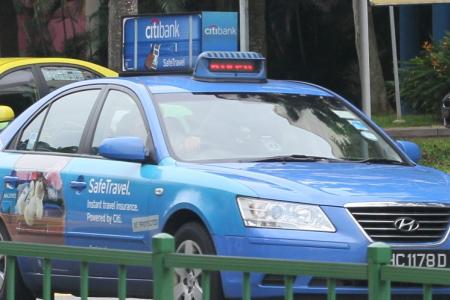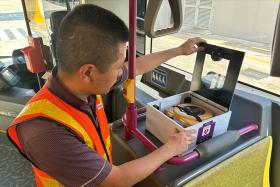Comfort taxis to have dynamic pricing
Move likely to push up average fare during peak hours but reduce waiting time, says expert
Singapore's largest taxi operator, ComfortDelGro, will launch a dynamic pricing system for its 13,600 cabs from next Friday.
For customers, this means that fares for Comfort and CityCab taxis could be lower than metered rates during off-peak hours, but also surge during periods of high demand.
The dynamic pricing option for ComfortDelGro taxis will be offered through the Uber app and a new UberFlash function. The service dispatches the nearest ComfortDelGro taxi or Uber private-hire car to the requester.
The move to pool the supply of ComfortDelGro taxis and Uber cars on a common platform follows an alliance between the two companies announced last month. The deal, which is still under review by the Competition Commission of Singapore, will see ComfortDelGro acquiring a 51 per cent stake in Uber's rental car subsidiary, Lion City Holdings.
According to a newspaper notice put up by ComfortDelGro yesterday, UberFlash charges a base fare of $3, with a per kilometre rate of 45 cents.
In comparison, the metered rates for ComfortDelGro taxis are higher, with a base fare of between $3.20 and $3.90, and a distance charge that works out to 55 cents a kilometre for the first 10km, and 63 cents per kilometre thereafter.
However, UberFlash fares fluctuate according to demand.
Commuters have lamented that Uber fares can be two to three times more during peak periods, or when there are MRT disruptions.
ComfortDelGro and Uber said yesterday they will share more details of UberFlash later on.
They said: "We are excited about our partnership... to improve the overall transportation landscape, giving Singapore more choices to move around at the tap of a button."
Following ComfortDelGro's tie-up with Uber, all 23,000 taxis in Singapore will offer a dynamic pricing option.
Since March last year, close to 10,000 taxis from the five other taxi firms started offering dynamic pricing, if rides are booked through the Grab app.
Singapore University of Social Sciences transport researcher Walter Theseira said that with all cabs now offering dynamic pricing, it is likely that the average taxi fare paid during peak hours will go up, but commuters should benefit from shorter waiting times.
While metered fares offer transparency to commuters, the algorithms used by ride-hailing apps in dynamic pricing do not.
Professor Theseira said: "To protect consumers, regulations will have to evolve, to perhaps stipulate some limits on dynamic pricing, or require companies to provide some back-end justification to the price surges."
National Taxi Association executive adviser Ang Hin Kee said that under the dynamic pricing system, taxi operators need to ensure cabbies' takings are not adversely affected.
Get The New Paper on your phone with the free TNP app. Download from the Apple App Store or Google Play Store now


